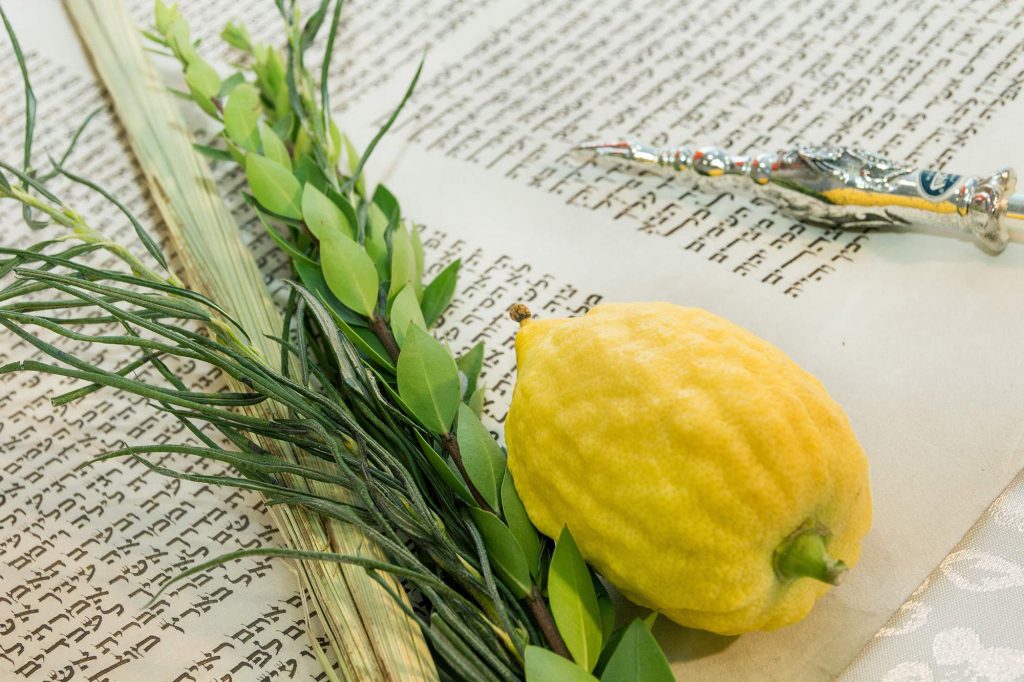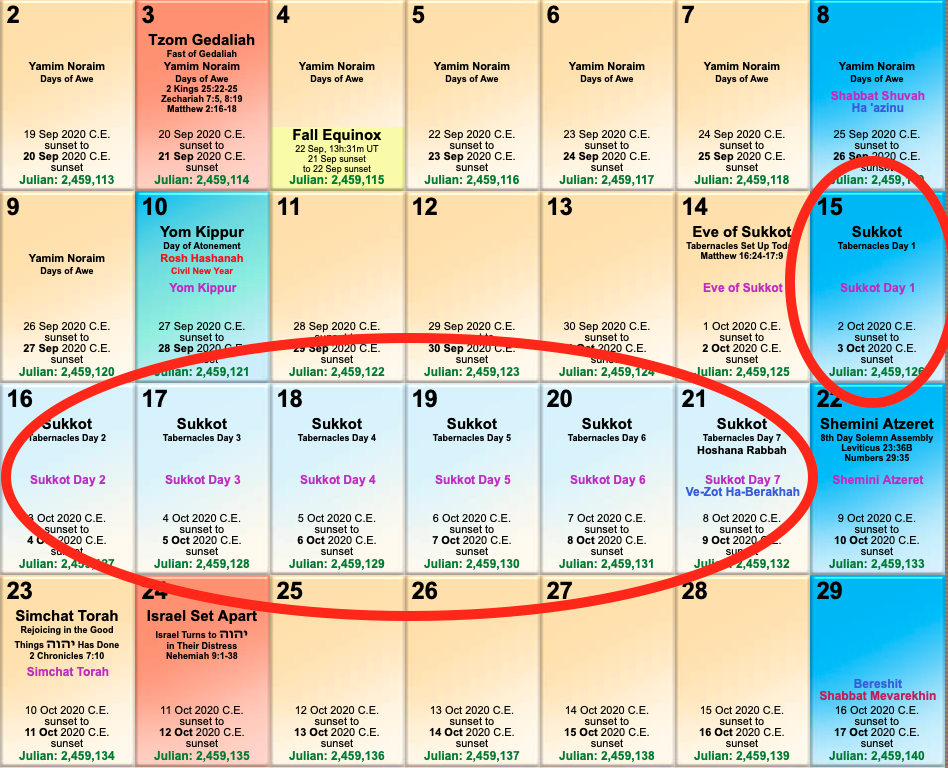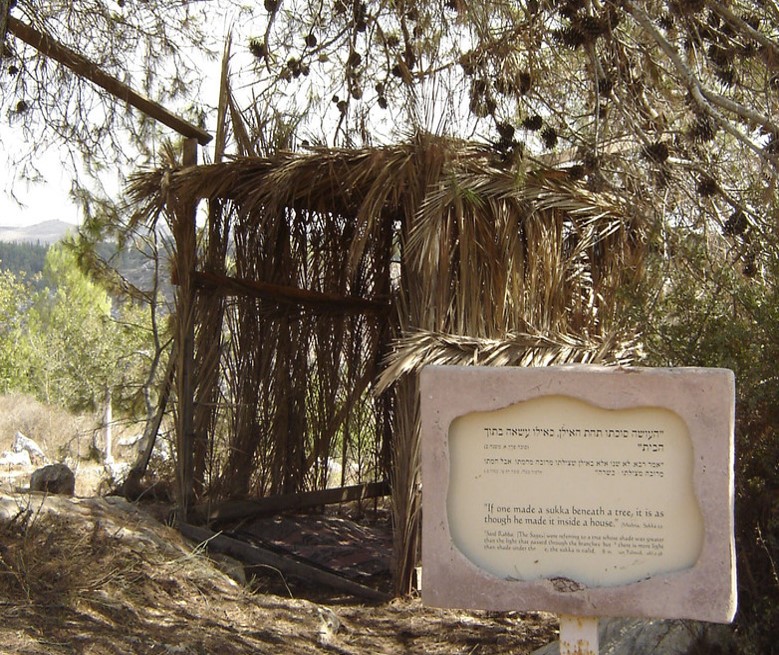Part 1

(33) Then the Lord spoke to Moses, saying, (34) Speak to the children of Israel, saying: The fifteenth day of this seventh month {shall be} the Feast of Tabernacles {for} seven days to the Lord.
[Leviticus 23:33–34 NKJV]
Scriptures: Exodus 23:16; 34:22–23; Leviticus 23:33–39; Numbers 29:12–39; Deuteronomy 16:13–16; 31:10–13; Ezra 3:4; Nehemiah 8:14–15; Psalm 81:1–3; Hosea 9:5; 12:9; Zechariah 14:16; John 7–9.
Sukkoth will begin at sunset Friday October 2, 2020.

Image Copyright (c) www.torahcalendar.com
The seventh and final of the Mosaic feasts is the Feast of Booths, or in Hebrew, Sukkot. It also commonly known by the name Feast of Tabernacles. It is the most festive and celebratory feast of all of Israel’s feasts. It is the third and final required pilgrimage feast.
The Hebrew word sukkot, meaning a booth, or hut—a temporary dwelling made of branches of certain trees specified for the occasion. The feast serves as a reminder of God’s provision during Israel’s wilderness wanderings, when the people would have lived in similar shelters. It is a seven-day feast that begins at sunset on the fifteenth day of the month of Tishri.

Summary: The Feast of Booths/Tabernacles is also known as the Feast of Ingathering, because it takes place at the time of the final harvest of the season. It is characterized by great joy, commemorating both God’s past goodness during the wilderness wanderings, and his present goodness and provision.
The Feast of Tabernacles is also known as the Great Feast. Of the seven feasts, it is the one most modern believers know the least about despite being the one mentioned more often in the Bible than all the other feasts.
It was at a critical moment during the Feast of Tabernacle’s ritual celebration that Jesus interrupted the festival with his proclamation…
(37b) If any man thirst, let him come unto me, and drink. (38) He that believeth on me, as the scripture hath said, out of his belly shall flow rivers of living water.
[John 7:37b–38 KJV]
Jesus’ statement was predictive of the outpouring of the Holy Spirit his disciples would experience after his death, resurrection, and ascension, and of the indwelling of the Holy Spirit the Jews will receive when they enter into the New Covenant at Christ’s Second Coming. As such, the Feast of Tabernacles foreshadows the Messianic Age, also known as the Millennium.
(25) Then they shall dwell in the land that I have given to Jacob My servant, where your fathers dwelt; and they shall dwell there, they, their children, and their children’s children, forever; and My servant David shall be their prince forever. (26) Moreover I will make a covenant of peace with them, and it shall be an everlasting covenant with them; I will establish them and multiply them, and I will set My sanctuary in their midst forevermore. (27) My tabernacle also shall be with them; indeed I will be their God, and they shall be My people. (28) The nations also will know that I, the Lord, sanctify Israel, when My sanctuary is in their midst forevermore.
[Ezekiel 37:25–28 NKJV]
Once again, it cannot be too strongly emphasized that these kinds of associations between historical/typical and historical/anti-typical events is one of God’s “divine highlighters” designed to get our attention.
Followers of Christ are encouraged to “keep the feast(s)” in 1 Corinthians 5:8, but this of course means to “keep the feasts” through the cross–in other words to recognize and celebrate their application in Christ.
Understanding and celebrating Sukkot, reminds us that we have the blessing of the indwelling of the Holy Spirit presently as we taste of the goodness of the word of God and the power of age to come (Heb. 6:5).